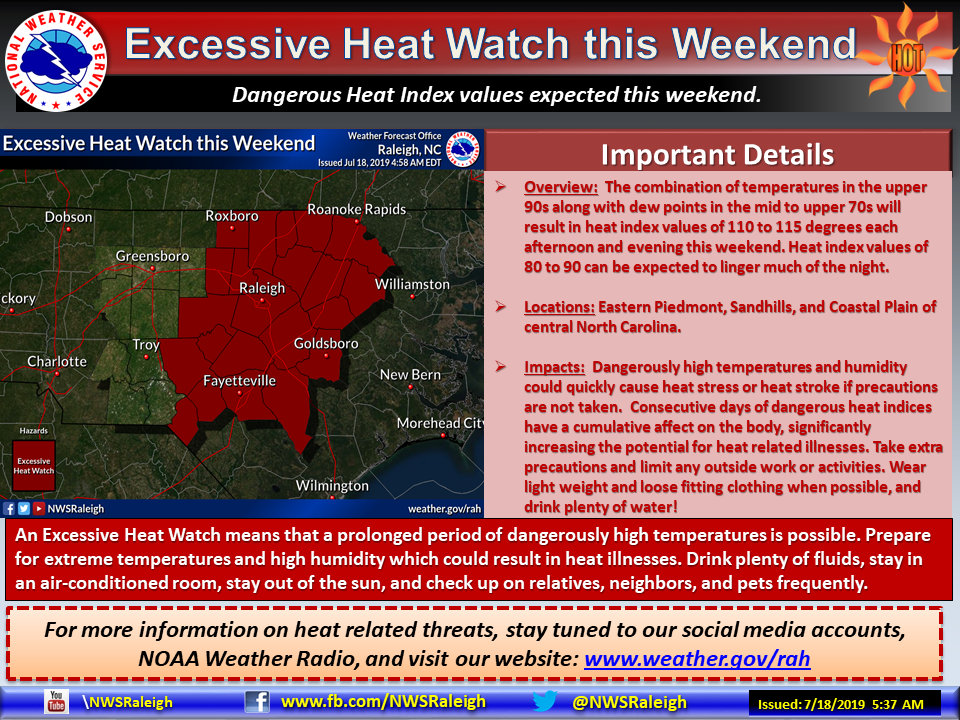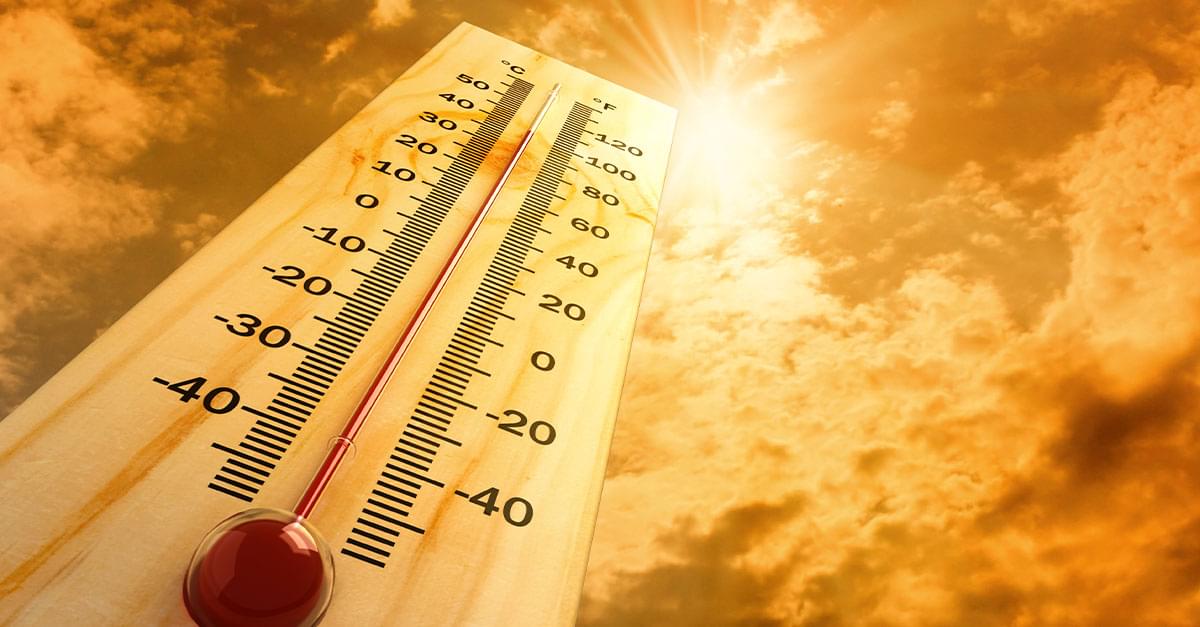Take precautions if you go outside!
The National Weather Service has warned that Central and Eastern US will be hit by a heat wave through the weekend.
With temperatures reaching above 100 degrees, extra care must be taken when going outside, “The combination of heat and humidity can take its toll on someone who is outside and overdoing it,” said Richard Bann, a meteorologist for the National Weather Service Weather Prediction Center. “It can be life-threatening.”

Here are a few safety tips during a heat wave:
- Slow down. Strenuous activities should be reduced, eliminated, or rescheduled to the coolest time of the day. Individuals at risk should stay in the coolest available place, not necessarily indoors.
- Dress for summer. Lightweight, light-colored clothing reflects heat and sunlight and helps your body maintain normal temperatures.
- Foods (like proteins) that increase metabolic heat production also increase water loss.
- Drink plenty of water or non-alcoholic fluids. Your body needs water to keep cool. Drink plenty of fluids even if you don’t feel thirsty.
- Do not drink alcoholic beverages.
- Spend more time in air-conditioned places. Air conditioning in homes and other buildings markedly reduces the danger from the heat. If you cannot afford an air conditioner, spending some time each day (during hot weather) in an air-conditioned environment affords some protection.
- Don’t get too much sun. Sunburn makes the job of heat dissipation that much more difficult.
Safety tips when taking pets outside:
- Never leave your pets in a parked car
- Limit exercise– limit this to early morning or evening hours
- Don’t rely on a fan– they don’t cool off pets as effectively as they do people.
- Watch the humidity– If the humidity is too high, animals are unable to cool themselves
- Provide ample shade and water
- Watch for signs of heatstroke – some signs of heatstroke are heavy panting, glazed eyes, a rapid heartbeat, difficulty breathing, excessive thirst, lethargy, fever, dizziness, lack of coordination, profuse salivation, vomiting, a deep red or purple tongue, seizure and unconsciousness.
Read more via humanesociety.org, newschannel20.com, and weather.gov.
